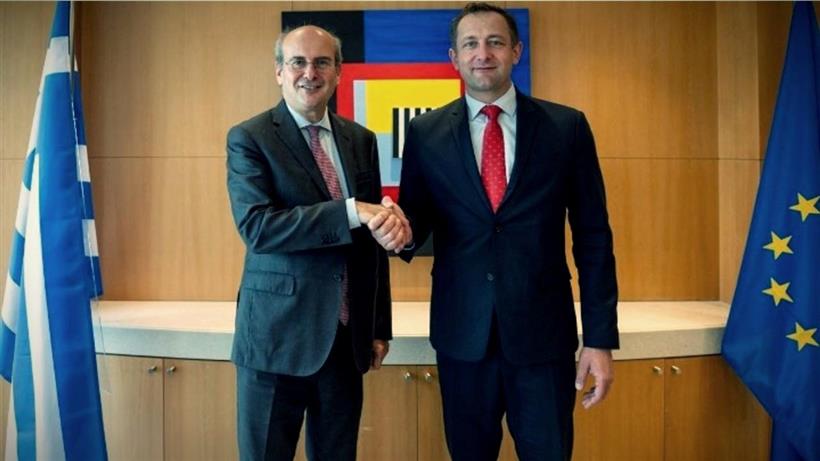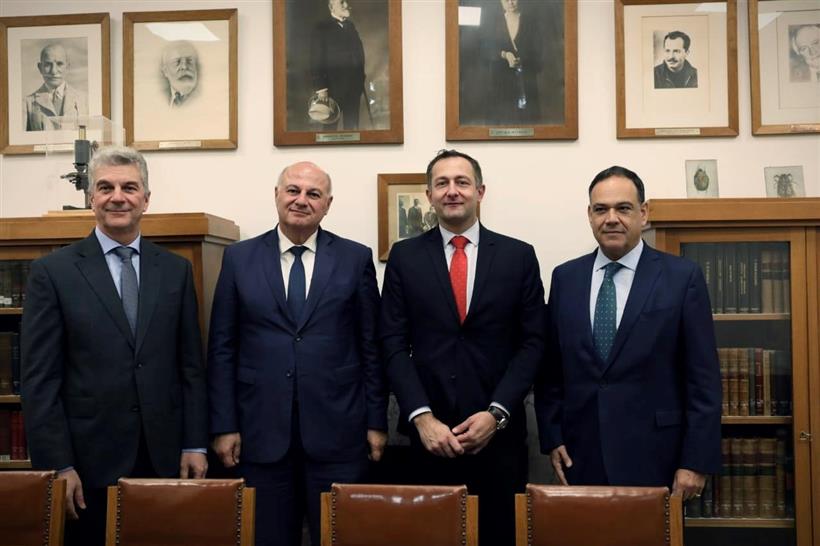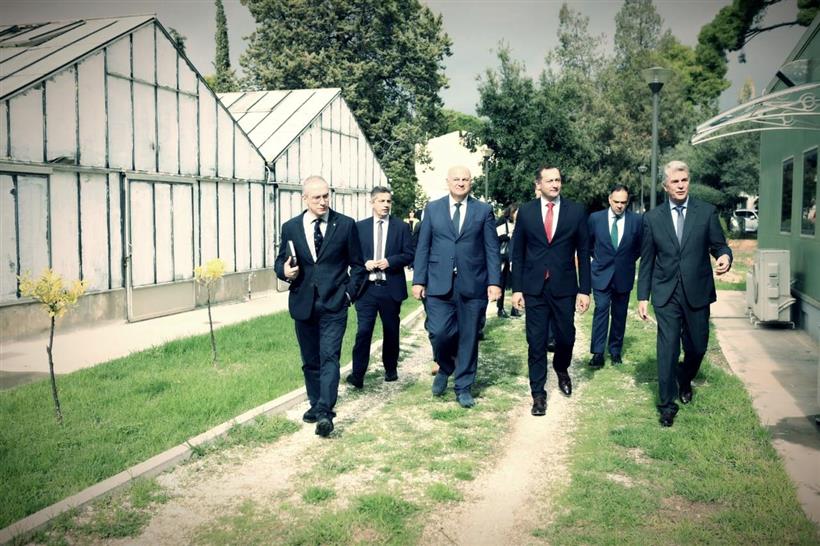Agro World News: Athens: EU Commissioner Christophe Hansen underscores steady cooperation in support of Greek farmers

During a series of high-level meetings in Athens, European Commissioner for Agriculture and Food, Christoph Hansen, and Greek officials, including Agriculture Minister Kostas Tsiaras and Vice President Kostis Hatzidakis, reaffirmed a shared commitment to ensure a reliable, fair, and modern system of agricultural payments under the evolving framework of the Common Agricultural Policy (CAP).
The visit of European Commissioner for Agriculture and Food, Christoph Hansen, to Athens unfolded against the backdrop of ongoing adjustments in the Greek agricultural support system and wider discussions regarding the strategic direction of the Common Agricultural Policy (CAP). In a series of meetings with Greek Minister of Rural Development and Food, Kostas Tsiaras, and later with Government Vice President Kostis Hatzidakis, the two sides outlined their shared priorities: reinforcing the resilience of primary production, supporting genuine farmers, and ensuring institutional stability in the administration of agricultural aid.
The discussions between Tsiaras and Hansen at the Hellenic Agricultural Research Institute centered on the structural challenges currently facing Europe’s agri-food sector. Climate driven pressures, demographic decline in rural areas, and the economic weight borne by small and medium-scale producers were highlighted as common European concerns. The need to support young and active farmers, to safeguard social cohesion in rural territories, and to bolster defenses against animal diseases were given particular emphasis. Both sides reiterated that the CAP must remain “a tool for development, innovation, and balanced territorial growth,” advocating for policies that remain grounded in fairness and practical benefit for agricultural communities.

The tone grew more procedural during the subsequent meeting between Hansen and Hatzidakis, where attention turned to the ongoing restructuring of Greece’s agricultural payment administration. The Greek Government has initiated a significant institutional transition, including the integration of OPEKEPE the body responsible for managing CAP payments, into the Independent Authority for Public Revenue (AADE). The aim is to modernize the management and control system for agricultural aid, safeguard transparency, and prevent future delays or financial correction measures activated under EU oversight frameworks.
In their joint statement, the two sides emphasized that the European Commission “welcomes the significant progress made in recent months,” noting particularly the new Action Plan submitted by Greece for the modernization of the payment and control system. The Commission is currently assessing the plan and stressed that “the best way to avoid further financial corrections is ensuring full respect for EU law.” The Greek Government, in turn, expressed its determination to ensure the smooth and timely provision of agricultural aid to farmers.

Although the statements were diplomatic in tone, they point to a delicate balance: ensuring regulatory compliance while maintaining the trust of agricultural producers, many of whom have expressed concern over administrative reforms and recent delays. The message conveyed in Athens was one of continuity and cooperation, with Hansen and Hatzidakis reaffirming that both sides are committed to ongoing collaboration “to the benefit of Greek farmers” and to maintaining a “modern and reliable system of agricultural payments that supports real farmers and livestock breeders.”

The working visit concluded with a tour of the Benaki Phytopathological Institute, where EU-co-funded research programs illustrate the operational dimension of European agricultural policy, where regulation, science, and production intersect.
As the CAP moves into a period of recalibration ahead of its next programming phase, the discussions in Athens underscore how institutional adaptation, agricultural resilience, and geopolitical pressures converge within the everyday realities of food production. The next steps will unfold not only in ministerial meeting rooms, but also in the capacity of national administrations and the confidence of the rural communities they serve.

Ακολουθήστε το Agrocapital.gr στο Google News και μάθετε πρώτοι τις ειδήσεις
Οι απόψεις που εκφράζονται στα σχόλια των άρθρων δεν απηχούν κατ’ ανάγκη τις απόψεις της ιστοσελίδας μας, το οποίο ως εκ τούτου δεν φέρει καμία ευθύνη. Για τα άρθρα που αναδημοσιεύονται εδώ με πηγή, ουδεμία ευθύνη εκ του νόμου φέρουμε καθώς απηχούν αποκλειστικά τις απόψεις των συντακτών τους και δεν δεσμεύουν καθ’ οιονδήποτε τρόπο την ιστοσελίδα.




